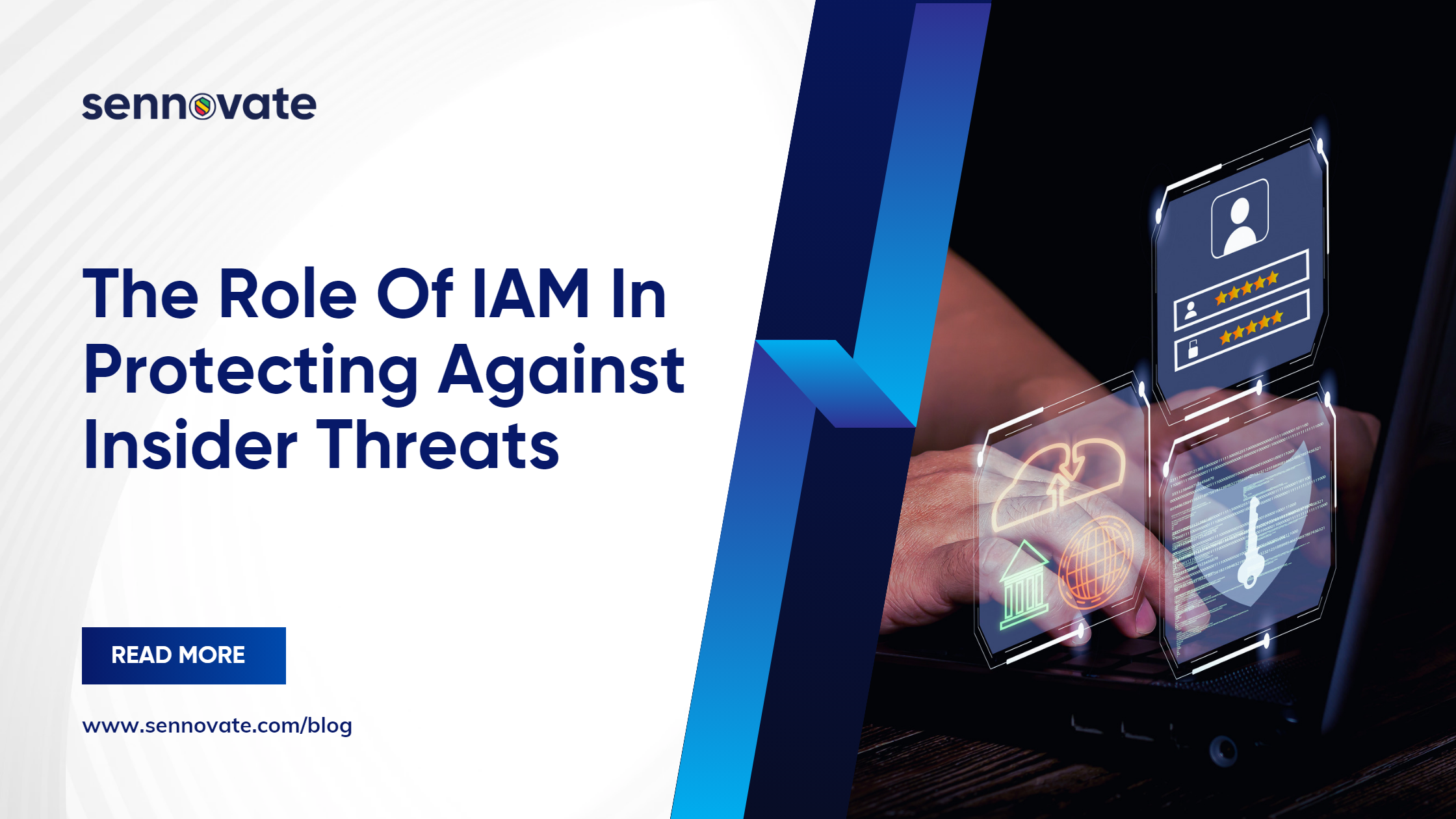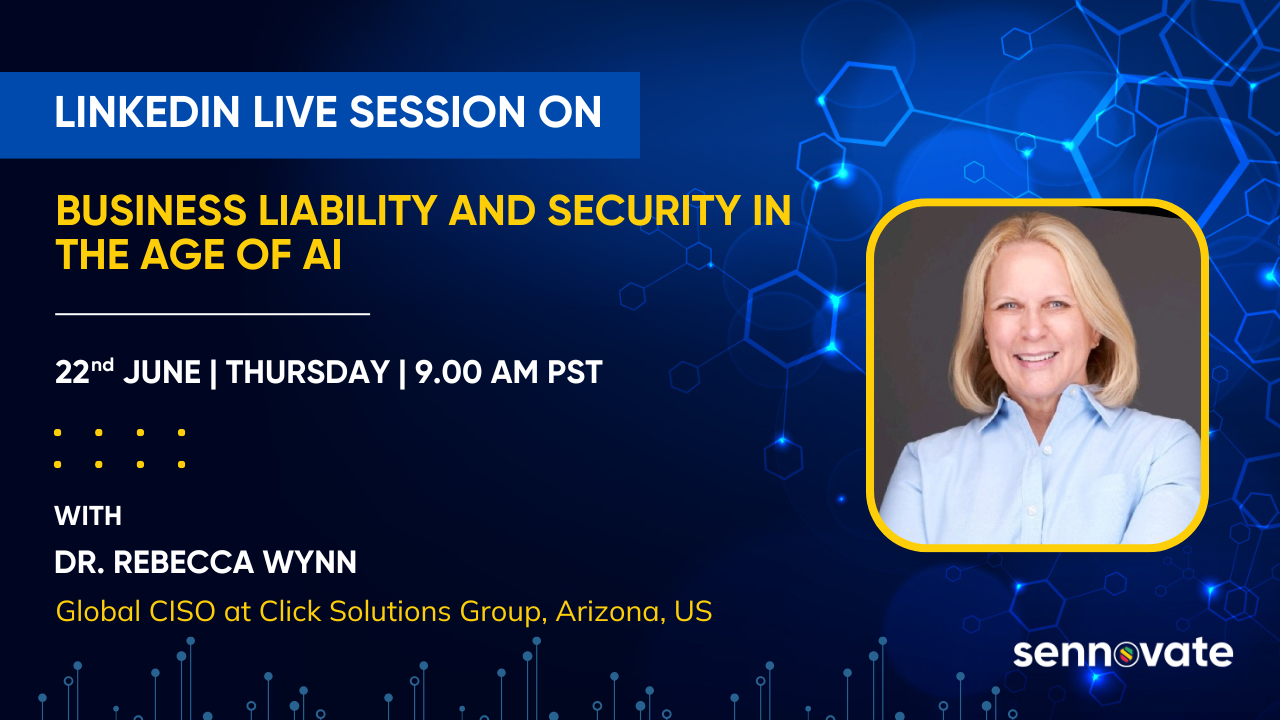
The Role Of IAM In Protecting Against Insider Threats
In today’s digital world, organizations face lots of cybersecurity challenges, including the risk of insider threats. Insider threats happen when individuals within an organization misuse their authorized access to exploit sensitive information or cause harm to the organization’s systems, data, or reputation. Such threats can lead to significant financial and reputational damages. To mitigate these risks, organizations need robust security measures, and Identity and Access Management (IAM) plays an important role in protecting against insider threats. In this blog, we will explore the significance of IAM in protecting organizations against insider threats.
You must be thinking what IAM is? How can it protect against Insider threats? What are the insider threats? Ugh, too many questions? No worries! This blog has answers to all your questions. So, be with us and get the answers to all your questions.
Let’s get started!
What is Identity Access Management (IAM)?
For the whole IT security, Identity and Access Management (IAM) is the important part that manages digital identities and user access to systems, resources, and data across the company. It is the security management system because of which it lowers the identity-related access risks across the organization.
Nowadays, leading IAM solutions are available for both on-premises and cloud implementation.
For better security, you have to choose the best and right IAM partner for your company that will diminish risks, upgrade compliance, and better up efficiency across your company.
What Are Insider Threats?
Insider threats encompass a wide range of risks happening from individuals with unauthorized access to an organization’s systems, networks, or data. These threats can originate from employees, contractors, business partners, or even disgruntled former employees. The motives behind insider threats can be anything, including financial gain, revenge, espionage, or accidental disclosure. Regardless of the motive, insider threats pose a significant challenge to businesses, as they often bypass traditional perimeter-based security measures.
How Does IAM Protect Against Insider Threats?
Identity and Access Management (IAM) is a framework that makes sure that the right individuals have the right access to the right resources within an organization’s infrastructure. IAM involves managing the full lifecycle of user identities, including their provisioning, authentication, authorization, as well as deprovisioning. While IAM is typically implemented to streamline user access and enhance productivity, it also serves as an important tool in mitigating insider threats. Here’s how IAM helps in safeguarding organizations from Insider Threats:
Enhanced Cyber Security
IAM solutions assist organizations in implementing proper security policies over all the systems, platforms, applications, and devices. To prevent the critical data of the organizations, it is necessary to have proper security policies. The reason for this is to make the process of identifying security violations, removing inappropriate access privileges, and revoking access whenever needed a lot easier.
In preventing potential insider attacks on sensitive data, Identity and Access Management (IAM) solutions assist businesses. As IAM solutions make sure that the employees only access the systems on the basis of their predefined role and cannot access systems without approval or a role change.
Granular Access Controls To Mitigate Insider Threats
IAM enables organizations to establish fine-grained access controls. By defining specific permissions and privileges based on job roles, least privilege principles can be enforced. This ensures that employees only have access to the resources necessary to perform their tasks, reducing the risk of unauthorized access and potential abuse.
User Provisioning and De-provisioning
IAM solutions facilitate automated user provisioning and de-provisioning processes. When an employee joins an organization, IAM systems streamline the onboarding process, granting access to the appropriate resources. Similarly, when an employee leaves or changes roles, IAM systems ensure prompt removal or modification of access privileges, reducing the likelihood of lingering access that could be exploited.
Multi-factor Authentication (MFA)
IAM solutions often include MFA capabilities, requiring users to authenticate using multiple factors such as passwords, biometrics, or hardware tokens. MFA strengthens security by adding an extra layer of protection, making it more difficult for malicious insiders to compromise accounts and access sensitive information.
Single Sign-On (SSO)
Single Sign-on (SSO) is one of the biggest benefits of a good IAM implementation for both users and IT. It is an authentication scheme with the help of which a user can log in with a single ID and password to any of several related, yet independent, software systems. A feature that delivers immediate productivity gains. Everyone should understand SSO and enjoy the benefits it provides.
Activity Monitoring and Logging
IAM systems can monitor and log user activities, creating an audit trail for review. This feature enables organizations to track user behavior, detect suspicious activities, and investigate any anomalies. By closely monitoring user actions, organizations can identify potential insider threats and take immediate action to mitigate risks.
Privileged Access Management (PAM)
Privileged accounts, such as system administrators or executives, pose a higher risk of insider threats. IAM systems often integrate with Privileged Access Management solutions, allowing organizations to secure and monitor privileged accounts more effectively. PAM solutions enforce stricter controls, implementing additional authentication measures and session monitoring to prevent unauthorized access or misuse of privileged accounts.
Regular Access Reviews
IAM systems facilitate periodic access reviews, ensuring that user access permissions remain appropriate over time. Regular reviews help identify and revoke unnecessary privileges, minimizing the risk of insider threats resulting from over-privileged accounts or stale permissions.
Why To Choose Sennovate?
Sennovate has expertise in implementing IAM, and MSSP solutions and has best-in-class security partners. We, at Sennovate, have experts to ensure up-and-running solutions in no time. With global partners and a library of 2000+ integrations, 10M+ identities managed, we implement world-class cybersecurity solutions that save your company time and money. We offer a seamless experience with integration across all cloud applications, and a single price for product, implementation, and support. Want to start with an IAM solution but don’t know how to start? Sennovate experts are just a call away!
Summing Up on Insider Threats
Insider threats present a significant risk to organizations’ cybersecurity and require proactive measures to mitigate them effectively. IAM plays a vital role in protecting against insider threats by establishing strong access controls, automating user provisioning and de-provisioning, implementing multi-factor authentication, enabling activity monitoring, and supporting privileged access management. By adopting an IAM framework and leveraging its capabilities, organizations can significantly enhance their security posture and reduce the likelihood of insider threats.
Implementing IAM alone is not a complete solution, and organizations must adopt a comprehensive cybersecurity strategy that includes employee education, incident response plans, and ongoing monitoring. However, IAM serves as a foundational element in protecting against insider threats and is an essential component of a robust cybersecurity defense.
Remember, safeguarding your organization from insider threats requires a holistic approach that combines technology, policies, and a culture of security awareness. By prioritizing IAM and adopting best practices, organizations can better protect their sensitive data, maintain customer trust, and minimize the potential impact of insider threats.
Having any doubts or want to have a call with us to know more about customer and workforce IAM solutions?
Contact us right now by clicking here, Sennovate’s Experts will explain everything on call in detail.
You can also write a mail to us at [email protected] or call us on +1 (925) 918-6618.
About Sennovate
Sennovate delivers Managed Security Operations Center (SOC) solutions, custom Identity and Access Management (IAM) solutions and Social Engineering Defence (SED) services to businesses around the world. With global partners and a library of 2000+ integrations, 10M+ identities managed, we implement world-class cybersecurity solutions that sa ve your company time and money. We offer a seamless experience with integration across all cloud applications, and a single price for product, implementation, and support. Have questions? The consultation is always free. Email [email protected] or call us at: +1 (925) 918-6618.

